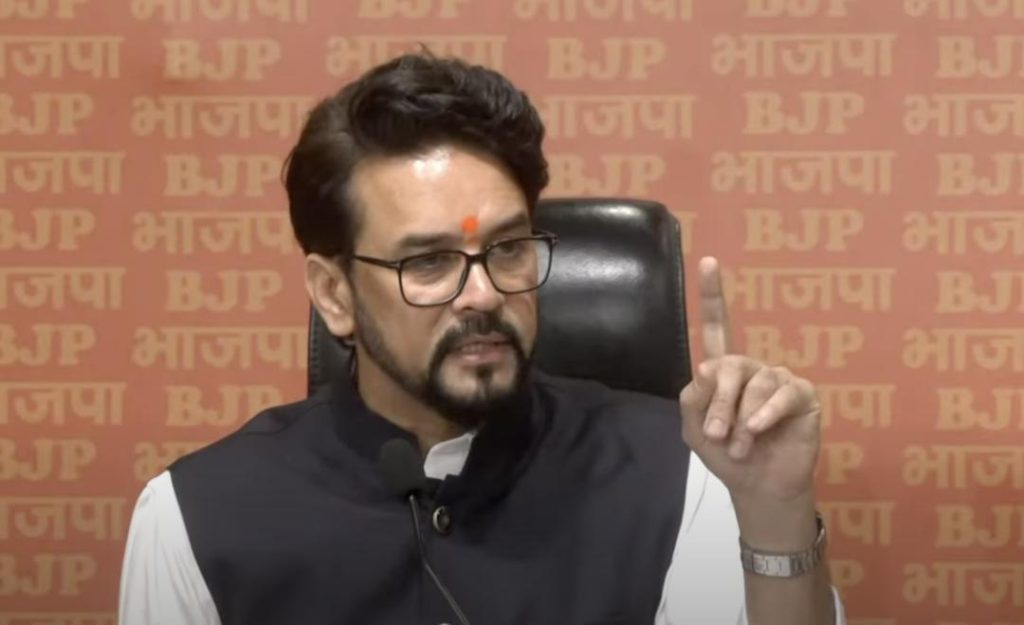
Congress & CPI made Bhimrao Ambedkar lose the poll in 1952: BJP
The Indian political landscape has been marred by controversies and allegations of electoral corruption for decades. Recently, a BJP MP made a sensational claim that Congress and the Communist Party of India (CPI) conspired to defeat none other than Dr. Bhimrao Ambedkar, the architect of the Indian Constitution, in the very first election of 1952. This accusation has sent shockwaves across the political spectrum, with many demanding an explanation and scrutiny of the claim.
According to BJP MP Anurag Thakur, the Congress and CPI worked together to defeat Dr. Ambedkar, a Dalit leader and constitutional expert, in the 1952 election. Thakur made these allegations in a recent speech, stating that 74,333 votes were rejected in the election, which he claims was a deliberate attempt to eliminate Dr. Ambedkar from the political scene.
The significance of Dr. Ambedkar’s loss in the 1952 election cannot be overstated. As the chairman of the Drafting Committee of the Constitution, Dr. Ambedkar played a pivotal role in shaping the country’s democratic framework. His loss would have been a significant blow to the Dalit community, which had been fighting for equal rights and representation in the political process.
Thakur’s allegations are a scathing indictment of the Congress and CPI’s electoral tactics in the early years of Indian democracy. He argues that the parties used every trick in the book to ensure Dr. Ambedkar’s defeat, including manipulating the electoral process and rejecting thousands of legitimate votes. This, he claims, was a deliberate attempt to eliminate a strong contender and maintain their own hold on power.
The BJP MP’s allegations have sparked a heated debate on social media, with many calling for an investigation into the matter. Some have questioned the motives behind Thakur’s claims, suggesting that they are an attempt to tarnish the reputation of the Congress party and its leaders. Others have demanded that the government take action to ensure that such electoral malpractices are not repeated in the future.
While Thakur’s allegations are certainly sensational, they are not entirely unfounded. Electoral corruption and manipulation have been a persistent problem in Indian politics, with allegations of vote buying, rigging, and tampering with electoral rolls being common features of many elections.
In the 1952 election, Dr. Ambedkar contested as an independent candidate from the Bombay-South constituency against Congress leader Y.B. Chavan. Although Dr. Ambedkar lost the election, his campaign was marked by significant enthusiasm and support from the Dalit community.
Thakur’s allegations have also highlighted the need for electoral reforms in India. The country’s electoral process is plagued by numerous issues, including lack of transparency, inadequate funding, and inadequate oversight. These issues can be exploited by unscrupulous politicians to manipulate the electoral process and undermine the democratic process.
In conclusion, the allegations made by BJP MP Anurag Thakur regarding the 1952 election are a sobering reminder of the challenges facing Indian democracy. While the claims are certainly sensational, they highlight the need for electoral reforms and greater transparency in the electoral process. As the country prepares for the next general election, it is essential that the government takes concrete steps to address these issues and ensure that the democratic process is protected from manipulation and corruption.
Source: https://youtu.be/0kLyW5rSJSg






